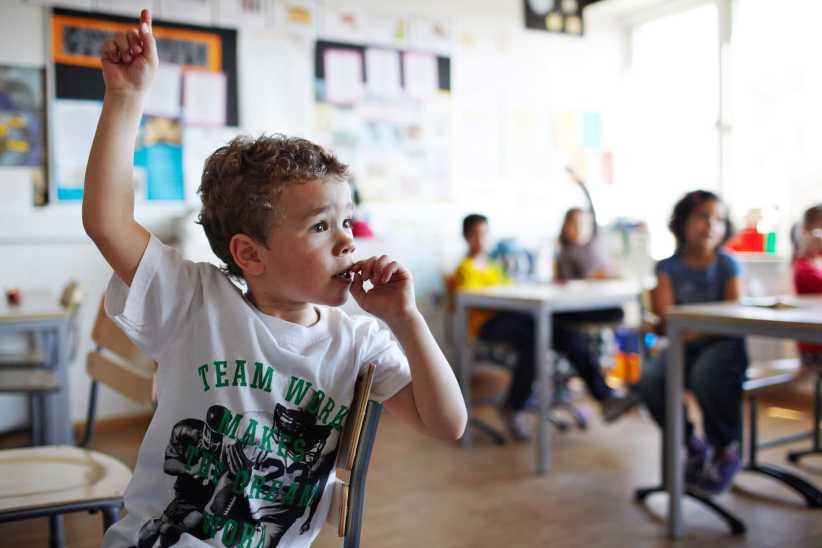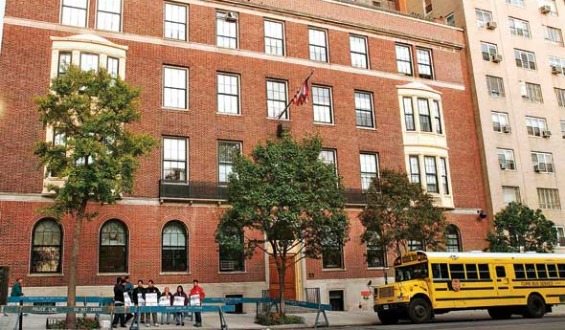
7 Leadership Skills Kids Need to Be Successful in the Future
The National Association of Colleges and Employers’ recent survey of 650 employers found that leadership skills were the most sought-after skills in potential new hires. Despite the plethora of talent emerging from our institutions of higher learning, the study reported that 77 percent of hiring managers found it difficult to find qualified candidates. “There is a need for leadership training—today’s learners must hone their skills to stay ahead,” the report concluded. Research by LinkedIn and The Harvard Business Review has corroborated these findings.
Many school administrators in the New York metro area are paying attention to these findings and have sought out leadership programs to complement their students’ education. “Having a debate team at our school has boosted the confidence and curiosity of our participating middle-schoolers. I’ve seen huge growth in critical thinking skills and a more polished approach to expressing thoughtful opinions,” says Monica Masterson, director of auxiliary programs at BASIS Independent Manhattan, which works with Dedimus Potestatem, an after-school provider that offers after-school leadership programs in schools. “The personal investment and preparation I see from students heading into a debate meeting or tournament shows me that students are learning the impact and weight their voice can have in a social space.”
Psst…14 Mindfulness Activities for Kids
We live in a time of rapid globalization, where we are increasingly expected to collaborate with people from different cultures with different needs and methods. ‘Soft’ skills (aka leadership skills) are now as relevant (or more so) than many of the ‘hard’ skills required on a resume. It is essential to teach students how to take the initiative and adapt to new circumstances, how to communicate effectively, and how to negotiate and resolve conflict in a way that builds and bolsters sustainable, stable relationships. It is vital to teach our children how to delegate and collaborate with others, to listen actively and think critically, and to demonstrate integrity and empathy.
7 Leadership Skills Kids Should Learn Now
So, what are the core leadership skills companies look for in future employees, and how do we teach our children those leadership skills in a fun and engaging way? Simple: Enroll them in after-school programs that require the consistent application of these skills. “Our programs and curriculum were built and developed based on our work with recruiters, employers, parents, school administrators, and educational organizations we have worked with around the world,” says Amanda Sawyer, founder and director of Dedimus Potestatem.
Based on research and Sawyer’s experience, these are seven of the most critical leadership skills to teach kids, with recommendations of programs that allow students to learn and apply these skills:
Initiative: We love it when our kids clean their room or take out the trash without us asking. And when our partner offers to make dinner when we’ve had an exhausting day? Even better. Those are instances of initiative—it’s what sets a leader apart from the average worker. In fact, initiative has been the mark of great leadership for centuries: “In class, we will often ask students to imagine how our world would be without the movements initiated by Mahatma Gandhi, Rosa Parks, or Nelson Mandela,” Sawyer says. After-school programs like fencing and mock trial allow students to practice taking action in a safe, educational environment.
Adaptability: “One of the most common concerns we hear from employers is a lack of flexibility,” Sawyer says. The ability to adapt is essential in business, diplomacy, medicine, and every other occupation. It is vital for any student growing up in a society where the technology used one year may be obsolete the next. Among the most popular Ted Talks is one by Roselinde Torres, a leadership expert with Boston Consulting Group, in which she details the importance of adaptability and how companies are relying more and more on their employees to see months in advance and plan to adapt. Programs like debate and chess require students to practice anticipating and adapting moment to moment.
Communication: Though the concept of connection seems easy enough, most people don’t realize that communication usually comprises many different skills: collaboration, active and empathetic listening, verbal and nonverbal cues, and more. Teaching students what it means to listen empathetically is a skill that will solve problems before they occur. Programs such as model congress and mock trial demand that students notice and adapt to verbal and nonverbal cues, listen actively and empathetically, and work to build and sustain relationships with others to accomplish their goals.
Organization: This skill is essential for obvious reasons, but it also complements other leadership skills such as presentation, delegation, and time management. Understanding how to effectively delegate to team members and delegate time is essential, but an individual must be organized before they can do either of these things. STEM programs usually always demand a level of organization and time management.
Empathy: A growing body of research in the past four years has shown a direct correlation between the financial success and long-term stability of a company with how empathetic it is. Harvard’s Global Empathy Index measures the relationship between a company’s overall performance and its level of empathy. Parents don’t need to see a performance index to know that children who are more empathetic build and keep stronger relationships—we can watch our little ones on the playground and see the benefits of empathy just as clearly.
Critical thinking: We are living in a time when information warfare is the new norm, and kids and adults alike struggle with what they perceive as biased or misleading information from politicians and news outlets. In fact, it’s so prevalent that several universities have modules on the subject. “Last year, we did a mass teacher training in Ukraine and Nigeria. One of the things we loved about both countries was the emphasis the government and educational ministries placed on the importance of critical thinking,” Sawyer says. Advocacy programs like debate and activism camps push students to research and analyze all sides of the subject, define terms clearly, pull evidence from reputable sources, and recognize fallacies in reasoning.
Mediation and conflict resolution: Can you imagine for a moment a world where everyone was capable of seeing the perspective of the other side? “Conflict resolution and reconciliation is one of my favorite things to teach precisely because watching students apply the tactics I learned at Harvard gives me hope for a better future,” Sawyer says. Mediation and conflict resolution simulations can be done with any age group, using fairy tales or popular films such as Harry Potter and Star Wars. Allowing students to brainstorm creative solutions based on mutual interests and mutual benefit puts students in a non-confrontational ‘win-win’ mindset that enables them to negotiate sustainable solutions. “In Model UN and at the United Nations International School, we have ‘student peacekeepers’ who help both parties mediate conflict in a way that both parties benefit,” Sawyer adds.
Students (and adults) learn best through modeling and experience. Students need to see teachers, parents, and other adults in their lives demonstrate leadership through actions. Plus, kids need the opportunity to apply leadership skills in ways that reinforce what they learn in school. Leadership programs, such as the ones mentioned above, are the best way to teach children to practice these essential leadership skills early and often.
“The benefit of Amanda Sawyer’s programs for the students went beyond raising one’s self-confidence and verbal skills. The programs teach leadership and critical thinking, empowering students to stand up for what is right, fight for the truth, learn to value teamwork, set the goal to become civically engaged, and feel empowered to become beacons of peace for a better world. Just a fantastic organization!” says Lidana Jalilvand, Ph.D., director of special programs at The United Nations International School. After all, anyone anywhere can be a leader as long as they have the right skill set.













